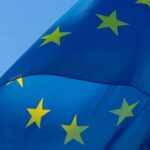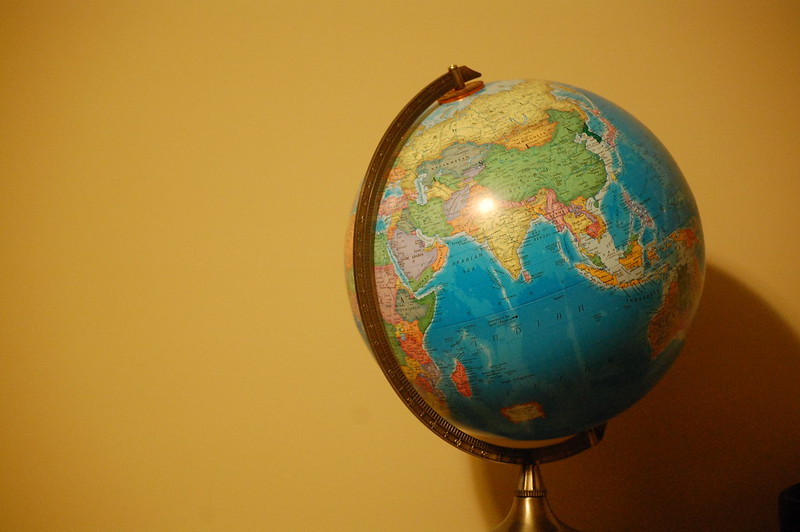In the United Nations General Assembly at the end of September, European Council President Charles Michel called for effective multilateralism in tackling today’s global problems. He stressed the EU’s role in building back better after COVID, contributing to a safer world and leading the race against climate change.
But how credible is the EU on the global scene, particularly when it comes to the partnership with Africa, our “closest neighbour” and key to our future?
On paper the EU disposes of a wide range of political, diplomatic and financial instruments to play a prominent role. It is well equipped as a global norm setter and advocate of a rules-based international order and offers an attractive model of regional integration, democracy and social market economy.
In practice, however, the complex, slow and divided EU often fails to meet the high expectations it raises. Nowhere is this clearer than with Africa, where ambiguities on both sides damage mutual trust and the scope for cooperation among “equal partners”. The partnership simmers over long standing contentious issues such as migration, climate change and governance, and these also hamper joint Europe-Africa action in international fora.
Due to COVID the 6th EU-AU Summit had to be postponed from 2020 to February 2022. This should be a new opportunity for concrete action:
First, In the short run, the EU must do more to demonstrate vaccine solidarity with Africa. As Europe slowly enters a post-COVID phase, bold and coherent EU action is needed in Africa. The EU funds the WHO’s COVAX facility and is now donating millions of vaccines to Africa. Yet, these numbers are insufficient in a continent where less than 5% of the population has been vaccinated and with poor health structures locally. “No one is safe until we are all safe” rings hollow if the EU is not willing to step up its support of the Covid-19 Technology Access Pool and expand its engagement in the COVAX Manufacturing Taskforce – both supporting the development of research and production systems in Africa.
Second, beyond the immediate needs to tackle the COVID health crisis, the EU and Africa should join forces to ensure a speedy and effective social and economic recovery. “Equal partnership” will never be achieved through traditional North-South cooperation. European aid should become superfluous over time and never substitute the responsibilities of African governments to invest more in better taxation systems, domestic resource mobilisation and redistribution of wealth.
A stronger Africa will reduce structural inequalities in the power balance that rarely lead to EU concessions on issues that matter to Africa. For example, on climate and environmental issues, the EU and Africa countries should formulate long term common and mutually beneficial positions, starting already at the COP26 in Glasgow early November. In this sense, a crucial instrument for rethinking and reshaping economic cooperation between Europe and Africa concerns the promotion of social and ecological standards in value chains. Due Diligence Law that is foreseen for October will be accompanied by flanking measures to ensure companies are not driven away from value chains in poorer and more fragile countries.
Third, the EU should tackle major inconsistencies between its interests and value agendas. While China’s developmental authoritarian model is appealing to part of the African leadership, younger generations are not willing to give up on democratic values, fundamental freedoms and gender equality. Post-COVID, effective and accountable states will be more needed than ever. On governance the EU is not always consistent in strongly promoting democracy agendas while continuing to support authoritarian leaders and rent seeking economic elites who have been monopolising power and resources for decades. It will be crucial to support the dynamic African civil society, local actors from city mayors to business leaders, and the younger generations of change-makers in countries where the space for democracy is shrinking.
Africa will be a key supplier of skills to meet the demographic needs of Europe. This is only likely to be reinforced by the immediate and long-term labour market gaps in key sectors for the recovery, from healthcare to social care and agriculture. Designing mechanisms to manage skills partnerships and visa regimes to address these shortages will be key and requires a trusted partnership between Africa and Europe on this topic.
Fourth, the EU and Africa should act as champions in constructing a more inclusive and rules based multilateral system.
The starting point must be that Africa and Europe are strategic partners as well as neighbours. This means strengthening existing platforms and instruments of both the African and the European Union, regional organisations and development banks and other key actors. What is needed is a renewed investment in multilateralism coupled with the forging of new and stronger alliances.
This means, amongst others, the modernisation of the World Trade Organisation and the World Health Organisation as well as the International Financial Institutions so as to better reflect the views of emerging countries and continents. In the longer term a serious process of reflection should be undertaken on the reform of the Security Council.
In the G20 openings should be made for a better African representation, beyond South Africa as the one and only African country. This is even more important as the G20 discusses a range of pertinent and timely issues for Africa such as debt relief, inclusive post-COVID recovery and structural cooperation in the financial and health sectors.
Concrete and consistent action will be needed to realise ambitious and challenging global agendas and build the trust and confidence between African and European partners. Once the dust of the COVID-19 crisis settles it will be time to build a new foundation for Europe-Africa relations so as to fully seize the opportunities that this crisis provides.
Posted first on the EU-Africa column of Euractiv in English and in Planeta Futuro – El Pais in Spanish.
Signed by the Directors of the European Think Tanks Group (ETTG)
– Anna Katharina Hornidge, Director German Development Institute (DIE) –Bonn
– Carl Michiels, Director European Centre for Development Policy Management (ECDPM) –Maastricht/ Brussels
– Charles Powell, Director for the Elcano Royal Institute – Madrid
– Nathalie Tocci, Director of the Istituto Affari Internazionali (IAI) – Rome
– Sebastien Treyer, Director Institute for Sustainable Development and International Relations (IDDRI) – Paris
– Sara Pantuliano, Chief Executive of the Overseas Development Institute (ODI) – London
– Geert Laporte, Director European Think Tanks Group (ETTG) – Brussels
– Vera Mazzara, Coordinator, European Think Tanks Group (ETTG) – Brussels
Photo source: EC – Audiovisual Service
Related posts:
 Beyond business as usual: Igniting the AU-EU partnership on peace, security and governance
Beyond business as usual: Igniting the AU-EU partnership on peace, security and governance
 The sixth EU-AU Summit: Partners in therapy?
The sixth EU-AU Summit: Partners in therapy?
 The future of the EU as a global development actor
The future of the EU as a global development actor

